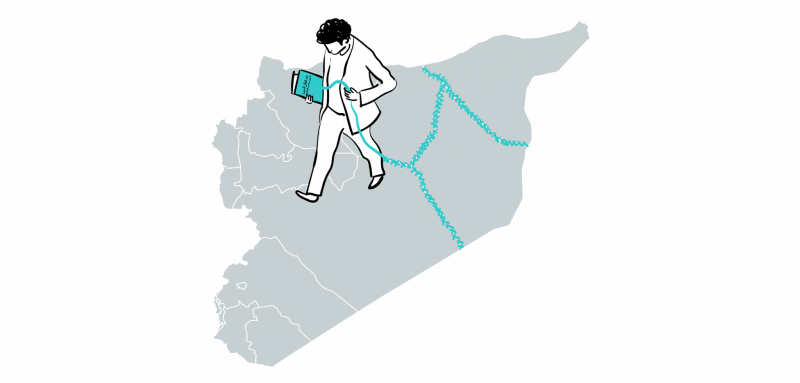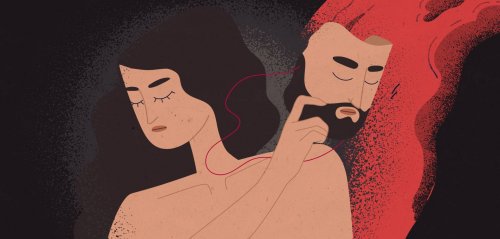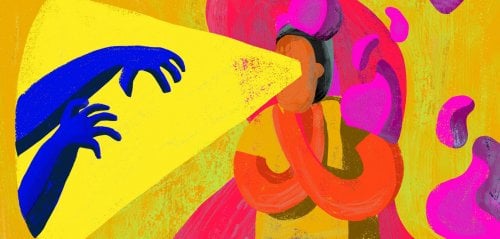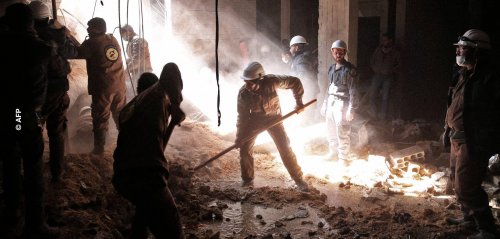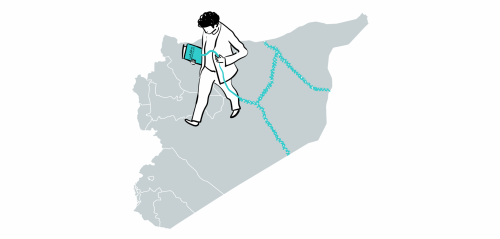As a child growing up in the sixties and seventies, my family, like other Syrian families, was gripped by the painful sting and the enormous humiliation of the 1967 Arab defeat. Debates about the causes of the defeat and the future of the Arabs dominated conversations all around me. These debates invariably envisioned different futures of Syria and the Arabs.
My paternal uncles saw the need for a return to our core beliefs in Islamic thought, the promise of justice and righteousness, and the Islamic Umma (nation). My maternal uncles, on the other hand, saw a more Soviet-styled socialist liberation and an equitable Syria that was part of a global socialist movement.
Was what took place on June 5th 1967 a defeat or a setback? The world was speeding towards a future of science and progress, while our Arab train was standing in station — cold, silent and unable to move because its passengers were yelling at each other.
During those times, the discourse of reverting to Islam as a model for recovering oneself and reclaiming the nation’s past “glories” was more prevalent. Yet it seemed to me that both visions were deeply unsatisfying when it came to daily life, and both seemed to contain inconsistencies and contradictions. Most problematic for me was that both visions placed limitations on what was acceptable or even permitted discourse. For both visions, certain beliefs were beyond contestations, and daring to question them rendered one an outcast through accusations of heresy and blasphemy on the one hand, or antagonistic charges of being a sell-out to global imperialist capitalism or bourgeois thinking, on the other hand. We lived in a closed intellectual universe.
Over those years I resisted these two disparate, competing outlooks and interpretations of the world. It was either “Islam is the solution” or “the dictatorship of the proletariat,” and the books available to me at the time offered no alternatives. The bookstores of Damascus reflected the prevailing “ideological” schisms. Some sold exclusively religiously oriented books with titles like Dialogue with an Atheist while others sold books about socialism with titles such as Scientific Socialism.
As a child growing up in the 60s and 70, my family, like other Syrian families, was gripped by the painful sting and the enormous humiliation of the 1967 Arab defeat. Debate about the causes of the defeat and Arabs' future dominated conversations #Syria
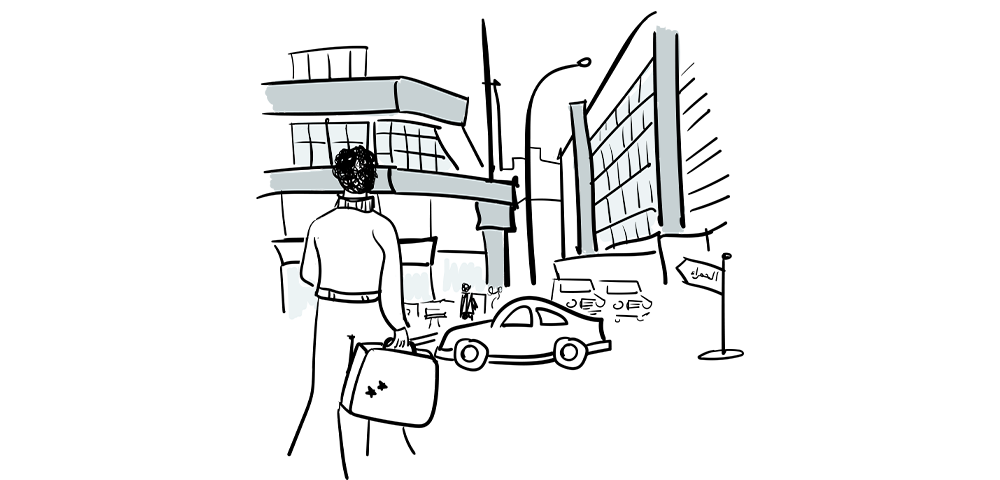
My first breakthrough by way of books came by chance during one of my visits to Beirut when I was seventeen years old. I was perusing through one of the bookstores in Hamra Street when the owner asked me about my favorite books. When I answered, he introduced me to the politics and philosophy section, then returned with a set of recommended titles, among which was Sadiq Jalal al-Azm’s book “Critique of Religious Thought”.
I was automatically gripped by the title, and despite the owner’s warning that it was banned in Syria, I purchased it and smuggled it back home to Damascus, and started a long intellectual journey that continues to this day.
Critique of Religious Thought
For me, Critique of Religious Thought represented not just a radical act of defiance and subversiveness in the face of oppressive thought censorship, it was also an act of radical intellectual liberation of the political and religious dogmas and taboos that we were asked to accept without rational basis. It was a liberation from the rigid thought boxes used by Muslim and socialist thinkers alike, and a reframing of the discourse, and not just simply a criticism of the sophistic debates and small intellectual grudges.
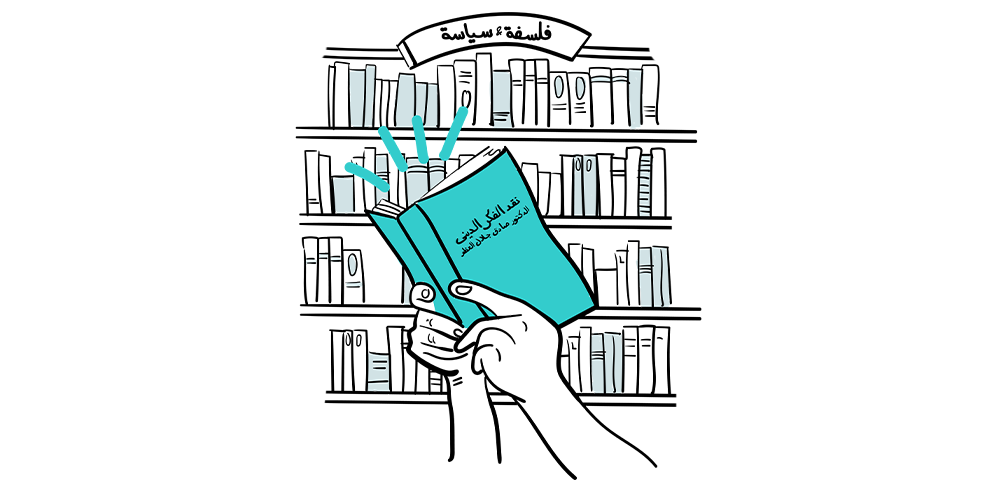
The piercing power of al-Azm’s book was its ability to transcend the intellectual discourse at the time and provide a framework for re-examining and breaking out of the confines of our own thought constructs. Al-Azm showed us clearly the edges of the intellectual box that we lived in, and the process of getting out of this box, which was tasked upon us alone. The book gave me the first key and the courage to lay a solid intellectual ground to criticize, and then surpass, the two prevailing rhetorics of that time.
Intellectual Courage & Syria's Future
Al-Azm tried to make us break out of the box we lived-in.
Today, when we look at a divided and split Syria, after more than ten years of a mad war, it has become necessary to re-read al-Azm’s Critique and his subsequent writings, and to discover his intellectual courage in facing the challenges of his time. Al-Azm’s central lesson to us is that— even in the midst of the screams, chaos, the pain of the victims, the devastation, and hardening mindsets — one must have the courage to reflect and not be held hostage by the present political and religious rancor and bitterness, and the will to confront and overcome them as well.
As I reflect back on my childhood, and specifically to July of 1969, the news of the US spacecraft’s Apollo landing on the moon’s surface filled newspapers and televisions at the time. Pictures of Neil Armstrong treading small, cautious steps on lunar dust represented leaps in the fate of mankind around the world. Yet my uncles — more than two years after the June 1967 war — were still trapped in the same debates about the formation of the promised state following the independence that took place more than twenty years before; should it be completely Islamic, completely socialist, or a mixture of both?
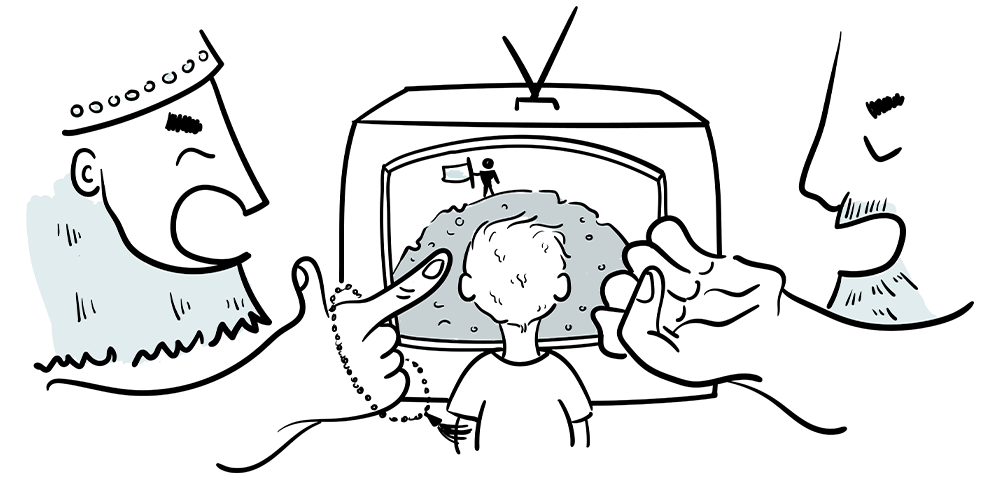
Was what took place on June 5th 1967 a defeat or a setback? The world was speeding towards a future with more scientific advances and human progress, while our Arab train was standing still at its station — cold, silent, and unable to move because its passengers were yelling at each other, exchanging accusations of heresy, betrayal, and capitulations, and no one was looking at the engine. Al-Azm tried to make us break out of the box we lived-in.
This is a translation of an Arabic article from Sadik Jalal al-Azm (1934-2016)... Putting Tribalism on Trial . The author of the piece chose to publish it without their name. The art pieces for are designed by Simon Samir, art director at Raseef22.
Raseef22 is a not for profit entity. Our focus is on quality journalism. Every contribution to the NasRaseef membership goes directly towards journalism production. We stand independent, not accepting corporate sponsorships, sponsored content or political funding.
Support our mission to keep Raseef22 available to all readers by clicking here!
Interested in writing with us? Check our pitch process here!
